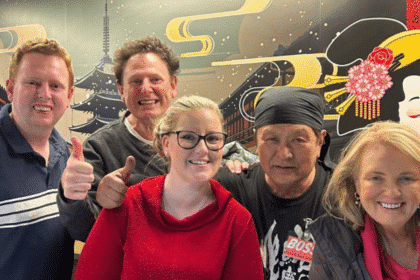Public relations experts have cautiously commended Southern Cross Austereo’s decision to indirectly donate funds to the family of Jacintha Saldanha, but believe the move is too little too late.
The radio network at the centre of the royal prank call scandal today announced it would return all advertising to embattled station, 2Day FM, tomorrow after a five day self-imposed suspension.
It also pledged to donate all of 2Day FM’s advertising profits from Thursday until the end of the year to a charity which will help the family of nurse Saldanha (pictured) – a guaranteed minimum of $500,000.
Simon Lloyd, head of consulting at AccessPR, told B&T while payment would not bring absolution, it was a step in the right direction.
“Saying you’re going to donate money should never be regarded as an easy way to fix a crisis like this. Nevertheless I think it is a very good move by Austereo.
“From a PR standpoint I don’t have any issue with them resuming advertising. It would have been smarter if they’d decided to donate a bit faster but it’s always easy to be wise after the event.”
“Because this is so unprecedented it’s impossible for anybody to say what is absolutely right or absolutely not right from a crisis management point of view. If I was to give them a score of how they were managing it so far it would be a B+.”
But Kat Thomas, MD of PR agency One Green Bean was more skeptical about the network’s cash promise, suggesting the move may be interpreted by the public as ‘blood money’ – unofficial compensation for loss of life.
“It’s a very tricky to decide whether this is right or wrong because in one regard it’s an acknowledgement and a willingness to put things right, but in another regard it’s could be seen as putting a dollar amount on someone’s life.
“There will be a bit of speculation around whether that was the right move and what the motivation is behind it,” she told B&T.
Putting aside ethical debates about the concept of monetary donation, both practitioners see flaws in the particulars of SCA’s offering.
Instead of pledging to donate advertisers’ dollars, Thomas believes the station should have committed its own, existing cash.
“They were very transparent about the fact that the money they will be using is advertiser dollars. There could be some speculation around whether that is the right move – whether they should be using advertiser dollars vs their own dollars to make good for the situation that their organisation has caused,” she said.
And what of SCA’s proposed timeline? The network has pledged it will donate advertising profits from tomorrow until the end of the year, which, in reality, is only 18 days away.
“To say until the end of the year when it’s so close to the end of the year is questionable. I would have thought it would be smart to put a longer time line on it because it’s not very long, even though they say they are going to guarantee $500,000.”
So what else needs to be done to save the station’s reputation?
Lloyd believes the network still needs to come clean about the processes which led to the phone call being broadcast.
While Southern Cross Austereo claims to have unsuccessfully called the King Edward Hospital VII five times for permission to play the call on-air , the hospital claims it has no record of any attempted calls.
“Honesty and transparency are really the critical elements in any corporate crisis and the biggest mistake they’ve made is failing to be completely honest, or apparently honest about the process involved.
“The fact that they have been less than forthcoming about the actual process of approval begs the question ‘what is going to happen if and when ACMA steps in?’ because that will reveal the truth.
“They have not yet admitted that the process was completely flawed and I think that is their most serious mistake,” he said.
Ultimately the station needs to be clear and proactive about formalising safeguards and initiatives which prevent such a debacle from taking place in the future, says Thomas.
“They’ve tackled it a little bit late and a little bit clumsily but they are handling it now,” she said.
“The key thing is that they need to flag what they’ve learnt out of this and what procedures and protocols they’ve put in place to make sure that they never land in a situation like this again.”








